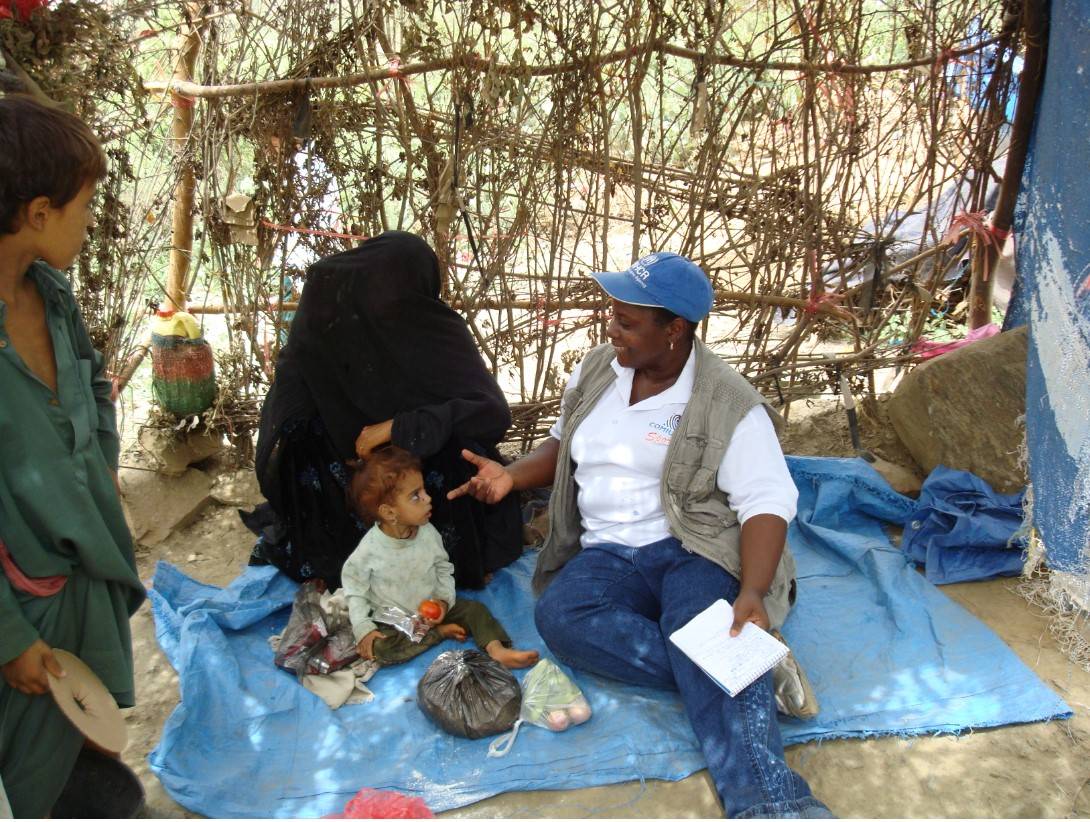#WomenHumanitarians – Martha Kow-Donkor - World Humanitarian Day

#WomenHumanitarians – Martha Kow-Donkor - World Humanitarian Day
UNHCR, 19 Aug 2019
Martha Kow-Donkor knows exactly how it feels to be a refugee. At the height of a major civil war in the early 90s, she fled her native Liberia for Tabou, Côte d'Ivoire.
For close to eight years she lived in exile before spontaneously returning back home to Liberia in 1998.
“My passion for humanitarian work developed when I was a refugee after seeing humanitarian agencies including UNHCR advocating and responding to the needs of myself, my family and other Liberian Refugees. “ Says Martha
Martha’s career with the humanitarian sector began over two decades ago. Soon after returning home despite the war that lasted up to 2003, she pursued job opportunities with different NGOs for five years before she joined UNHCR in 2005.
She has been serving UNHCR ever since, initially on secondment, as an International United Nations Volunteer and now as a staff member. Martha has also served in various countries including Yemen, South Sudan and Afghanistan.
Martha is currently based in Baidoa, Somalia where she works as a Field Officer (Protection) for UNHCR. She leads a team of six staff members in responding to the needs of Internally Displaced People (IDPs), refugee returnees and the host communities. The team also works in coordination with humanitarian partners, host communities and the government.
Having been in the humanitarian field for over two decades, Martha is well aware of the challenges that comes with her work. But her resilience and commitment to the cause keeps her going.
“I know there may be challenging times but I am passionate about serving vulnerable and displaced people. I had the same experience in Côte d'Ivoire coupled with language barriers. I thank UNHCR and humanitarian agencies for being there for me and my family. I am committed to continue my humanitarian work with integrity, professionalism and will continue to be the voice of those who are mostly in need”
For close to eight years she lived in exile before spontaneously returning back home to Liberia in 1998.
“My passion for humanitarian work developed when I was a refugee after seeing humanitarian agencies including UNHCR advocating and responding to the needs of myself, my family and other Liberian Refugees. “ Says Martha
Martha’s career with the humanitarian sector began over two decades ago. Soon after returning home despite the war that lasted up to 2003, she pursued job opportunities with different NGOs for five years before she joined UNHCR in 2005.
She has been serving UNHCR ever since, initially on secondment, as an International United Nations Volunteer and now as a staff member. Martha has also served in various countries including Yemen, South Sudan and Afghanistan.
Martha is currently based in Baidoa, Somalia where she works as a Field Officer (Protection) for UNHCR. She leads a team of six staff members in responding to the needs of Internally Displaced People (IDPs), refugee returnees and the host communities. The team also works in coordination with humanitarian partners, host communities and the government.
Having been in the humanitarian field for over two decades, Martha is well aware of the challenges that comes with her work. But her resilience and commitment to the cause keeps her going.
“I know there may be challenging times but I am passionate about serving vulnerable and displaced people. I had the same experience in Côte d'Ivoire coupled with language barriers. I thank UNHCR and humanitarian agencies for being there for me and my family. I am committed to continue my humanitarian work with integrity, professionalism and will continue to be the voice of those who are mostly in need”